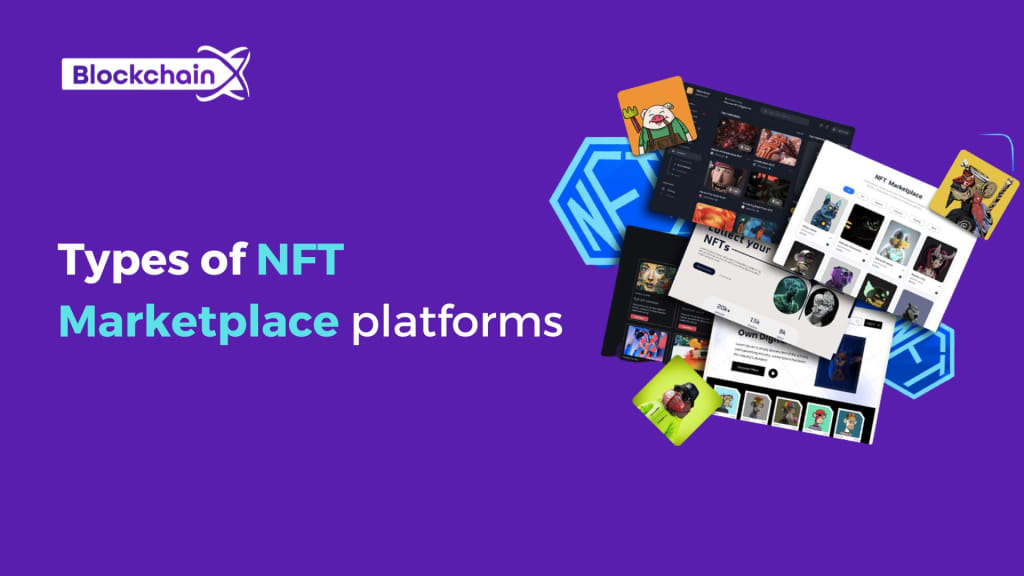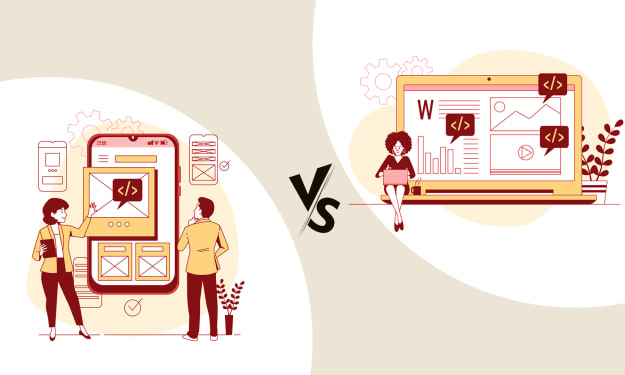
Universal non-fungible token
Every type of crypto asset can be traded through the general NFT market platform. This can include anything from digital art to domain names.
Niche Peer-to-Peer Marketplace
These NFT marketplace platform aim to offer certain digital assets, i.e. assets belonging to a specific niche. It is essentially an exchange platform for buying and selling tweets. Another example is the Glass Factory, where users can purchase digital holograms.
The NFT Marketplace: How Does It Work?
NFT Marketplace is an adaptive online platform that offers discounts to buy and sell non-fungible currency tokens. To buy and sell NFTs, it is necessary to use special platforms that allow you to issue exchanges, store and buy non-fungible tokens. Currently, the market is dominated by OpenSea, Superfarm, Rarible and Mintable. These marketplaces create NFTs by using smart contracts that provide unique parameters and information to tokens.
Types of Nft Marketplace
A well-designed NFT marketplace allows you to create a closer connection between buyers and sellers. Safe and fast transactions are possible. Non-fungible tokens are sold at a fixed cost or through auctions.
NFT technology marketplaces operate similar to similar online stores. Customers register on the marketplace and then create an online wallet. It can then be used to store NFTs and other cryptocurrencies.
What should be considered when creating an NFT marketplace?
NFT is a product or digital asset that contains electronic tokens that can be traced to the owner of the digital asset. Also, unlike fungible tokens, NFTs are not directly exchangeable. They need a unique marketplace platform.
Buyers can purchase virtual goods through different marketplaces using cryptocurrencies such as Ethereum and Bitcoin. The total amount of NFT transactions purchased is fixed by the market.
The development of the NFT market has shocked the world with its huge possibilities for the future. The rapid growth of NFT market development and the growing interest of millennials has prompted NFT market owners and creators to act.
# NFT metadata
It allows you to find the owner of the NFT. For example, when you search for the owner of token 212022 in any NFT’s smart contract, it will show the owner of token 212022 as “ABC”. This can then be verified using NFT marketplaces such as OpenSea. However, the question is which platforms such as OpenSea know the meaning of 212022 and its distinctive features?
This is where metadata comes into play. It is also known as ID, such as description, photo or any other additional characteristics.
# Non-fungible token standard
You’re trying to create an efficient NFT marketplace that assures users that the assets you provide in your application behave in a certain way. Standards can also help users understand how they should communicate with NFTs. NFT creators need to consider two criteria. You must take this into account when developing your NFT marketplace.
#ERC721
The standard is required to monitor and transmit NFTs. It provides certificates or ERC-721 tokens for indivisible projects. Each standard token in ERC-721 keeps data in its own custom smart contract. They contain details about the owner and identity of a particular asset.
#ERC1155
For example, if you trade multiple artifacts to the same video game, your ERC721 token set may not be enough. In this case, ERC1155, also known as the next-generation multi-token standard, can be a huge help in creating such NFTs.
The selection criteria depend on the type of NFT you are trading on the market. Let’s take a look at how NFT marketplace development works. It helps you come up with your ideas and provides a list of features to integrate into your NFT marketplace platform.
Key features of the NFT marketplace
Key features of NFT Marketplace include Storefront, Filters, Search Results, Listings, Listing Status, Auctions and Buys, Wallets and Ratings. Let us understand each feature in detail;
storefront
Storefront is the actual dashboard of the NFT marketplace, where every user will start their journey. It should be very informative and say everything about the asset. The store should generally include:
asset owner
asset information
previous bid
price history
and more.
searching feature
A successful NFT marketplace has full support for category division and management functions. The main purpose is to make it easier for users to search for items available for purchase.
create list
NFT marketplaces focus primarily on convenience for sellers. Thus, it allows sellers to easily create their listings and add NFT details.
auction and purchase
The NFT marketplace must have an NFT buying system that allows users to enter bid amounts, watchlist of bidder details and expiration date. This will create an efficient purchasing system.
wallet
The integration of wallets allows users to pay, receive or store NFTs and cryptocurrencies. For this functionality, you can either develop your own custom wallet or integrate an existing wallet into your NFT marketplace, making it hassle-free.
Devlop your Own Nft Marketplace with Nft marketplace Development Company
About the Creator
Boopathi
Digital Marketer , SEO Analyst






Comments
There are no comments for this story
Be the first to respond and start the conversation.